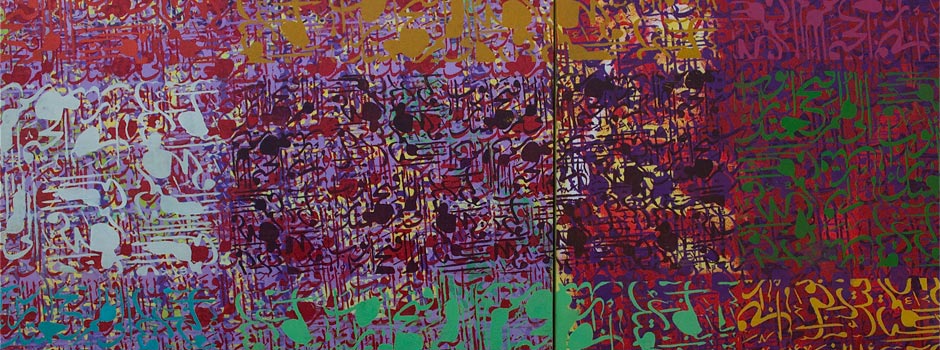
An Exhibition at the Atelier Gallery by Emerging Artist Sophia Ahmed Sattar
May 06, 2013 Exhibition
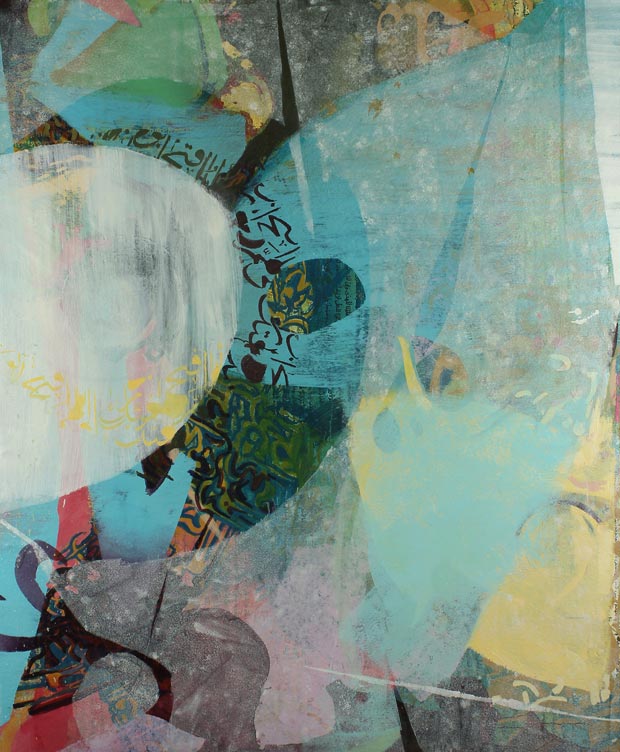 Sophia Ahmed Sattar, The Crescent Moon,70x60 in, oil on canvas / Courtesy of the Artist
Sophia Ahmed Sattar, The Crescent Moon,70x60 in, oil on canvas / Courtesy of the Artist
Sophia Ahmed Sattar was born in Karachi, Pakistan. She graduated in 1995 from Indus Valley School of Art and Architecture, receiving her bachelors in Fine Arts in painting and a minor in printmaking. With her thesis work on the Deans list, she was the first student to work as an art teacher at her college. She continued to exhibit in Lahore and Karachi, the two largest cities in Pakistan, with other women artists. Sophia has been featured in the Herald and Extra magazine in Pakistan. She worked as a theater actor, with Tehreek-e-Niswan (woman's forum) projecting issues concerning women of her country.
Sophia has earned her MFA in the graduate school of painting at the Academy of Art University in 2012. Her work has been selected as part of the Student Outreach Program by the De Young Museum. She was also part of the Salon and Spring Show at the Academy. In her community she has worked as a stage designer for Mashal, an annual Pakistani cultural show and the force behind the annual Muslim Artists Night at the local Islamic center. She continues to work and exhibit with Interfaith groups throughout the Bay Area. She is an ambassador of Muslima: Art and Voices at the International Museum of Women in San Francisco, through which she continues to bring goodwill between her culture and the West. Sophia is also presently showing her work as part of the IMOW global online show Muslima.
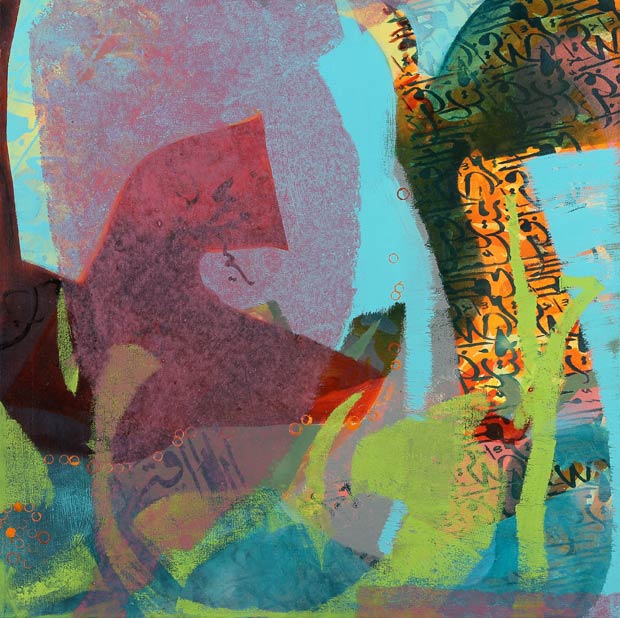 Sophia Ahmed Sattar, Northeast, 36x36 in, oil on canvas / Courtesy of the Artist
Sophia Ahmed Sattar, Northeast, 36x36 in, oil on canvas / Courtesy of the Artist
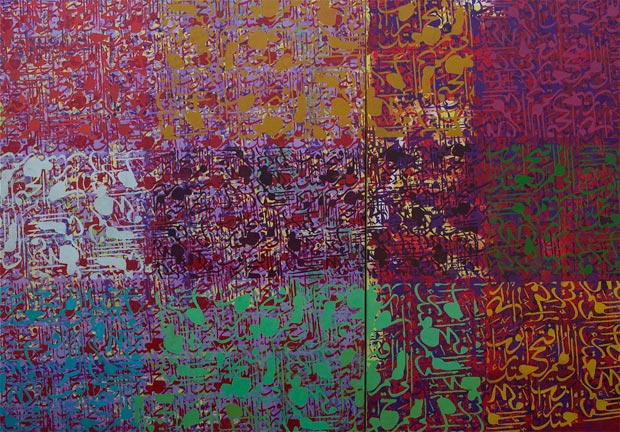 Sophia Ahmed Sattar, oil on canvas / Courtesy of the Artist
Sophia Ahmed Sattar, oil on canvas / Courtesy of the Artist
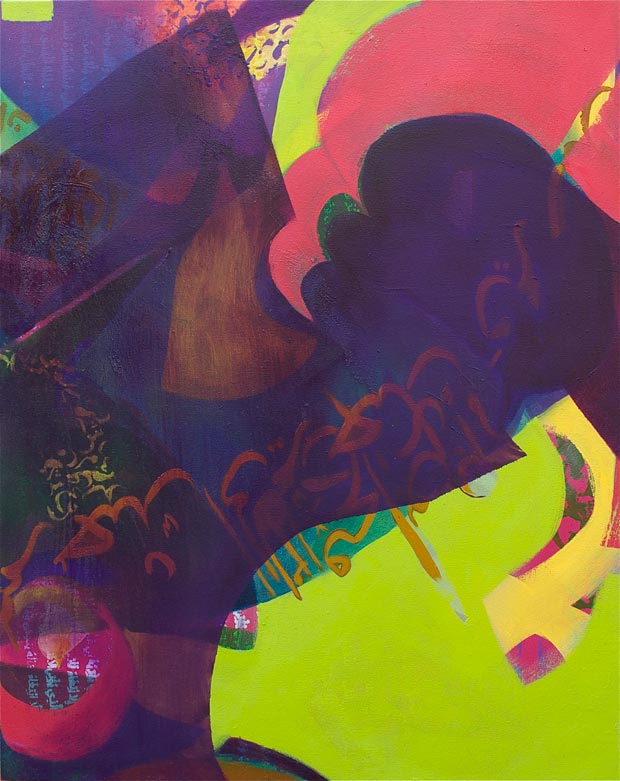 Sophia Ahmed Sattar, oil on canvas / Courtesy of the Artist
Sophia Ahmed Sattar, oil on canvas / Courtesy of the Artist
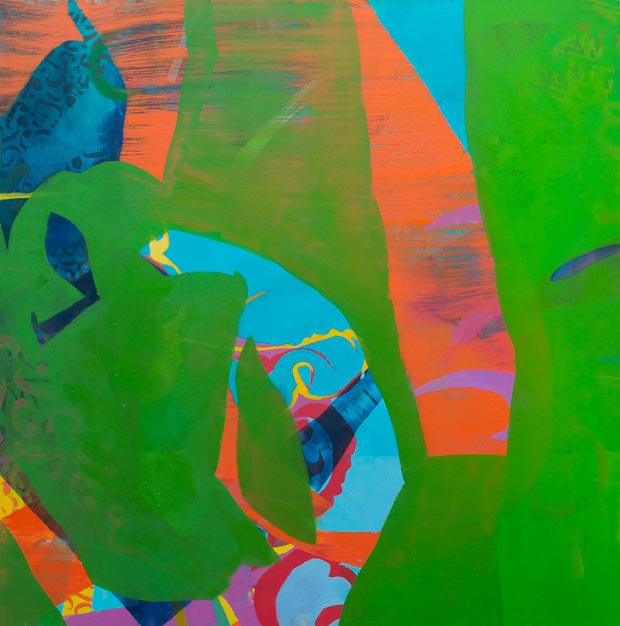 Sophia Ahmed Sattar, oil on canvas / Courtesy of the Artist
Sophia Ahmed Sattar, oil on canvas / Courtesy of the Artist
Sophia Ahmed Sattar explains her work:
"Arabic calligraphy in all its aesthetic and linguistic complexity is little understood in the West, and often regarded as an art form belonging to the classic Islamic arts, therefore, to the past. My idea is to explore the long history of using calligraphy as ornamentation, in Islamic art. I have taken this concept further by merging my western education with my religious and cultural sensibility. The result is, my paintings communicate abstract interplay of color, transparency and value, exploring calligraphic line, form and shape. And encourages the viewer to see Islam in an admirable way. My paintings are an amalgamation of East and West, classic with contemporary. Bridging the gap between two cultures, visually and culturally.
I explore the creative possibility of calligraphy. I use Urdu alphabets as shapes, rather than letters or words. The calligraphy is not meant to be read, but enjoyed. Keeping calligraphy as a dominant element in my paintings, written words give the impression of random brushstrokes, patterns or single letters develop into decorative loops.
The purpose of my art is to bring people together. Open dialogue about my culture and community with the western world. Engage society with Muslim identity dealing with the hybridity of living in America. My art, serving as a contemporary extension of this traditional art form, referencing a multitude of issues—religious, social, political and personal. My deep concern is to change the negative stereotype that inundates Muslim Americans."
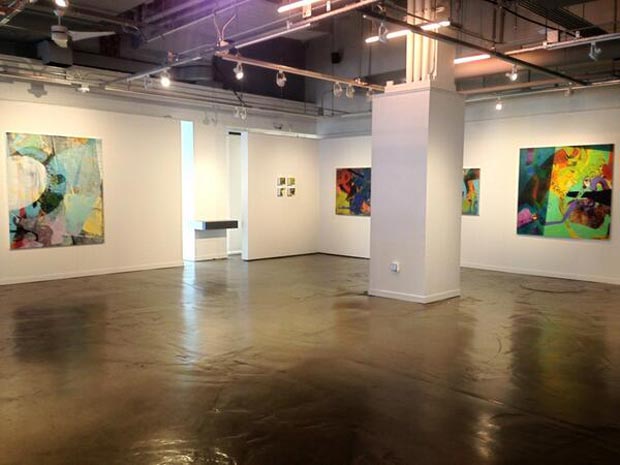 From the opening of the exhibition, installation view / Courtesy of the Artist
From the opening of the exhibition, installation view / Courtesy of the Artist
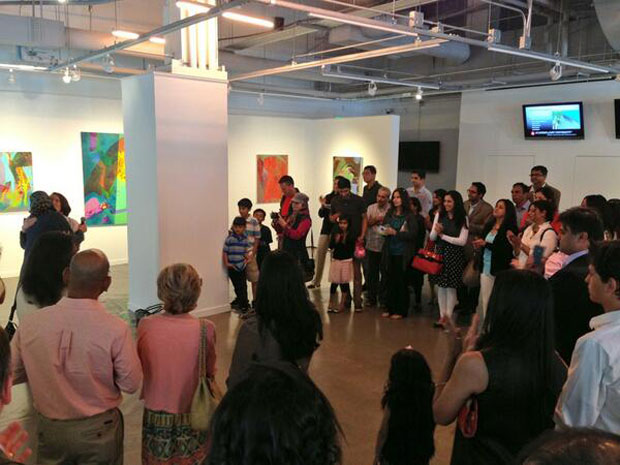 From the opening of the exhibition / Courtesy of the Artist
From the opening of the exhibition / Courtesy of the Artist
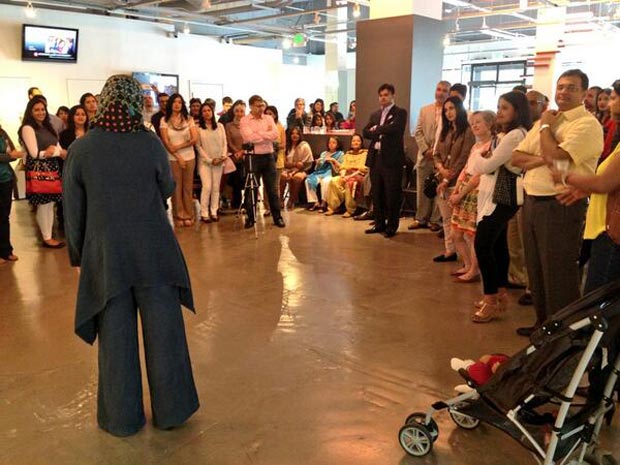 From the opening of the exhibition / Courtesy of the Artist
From the opening of the exhibition / Courtesy of the Artist
Comments
Add a comment